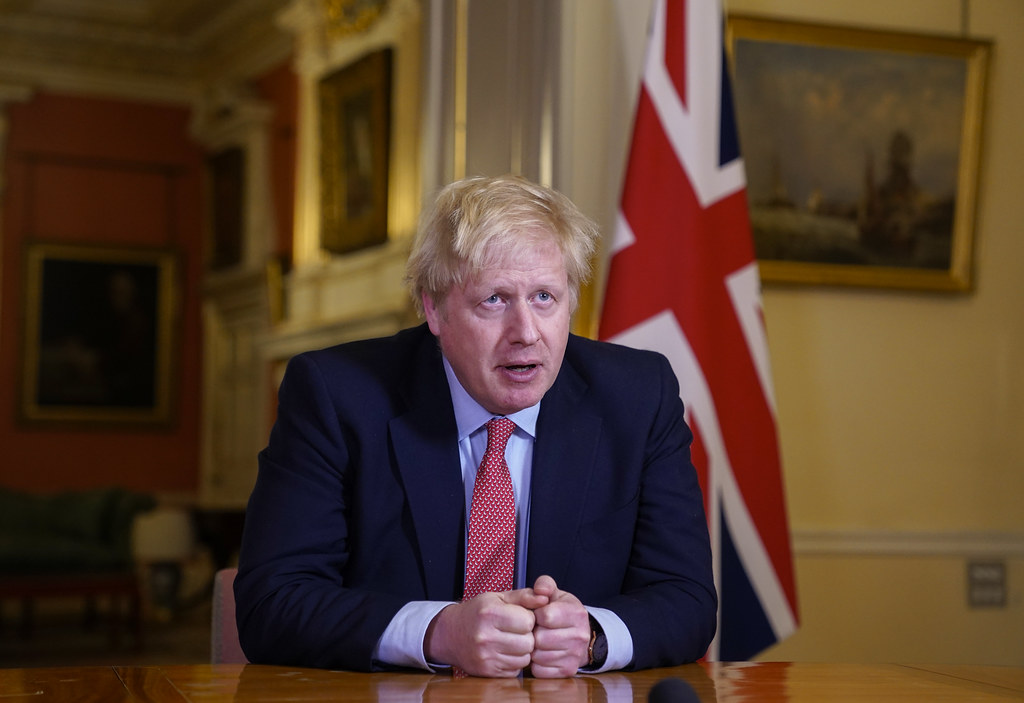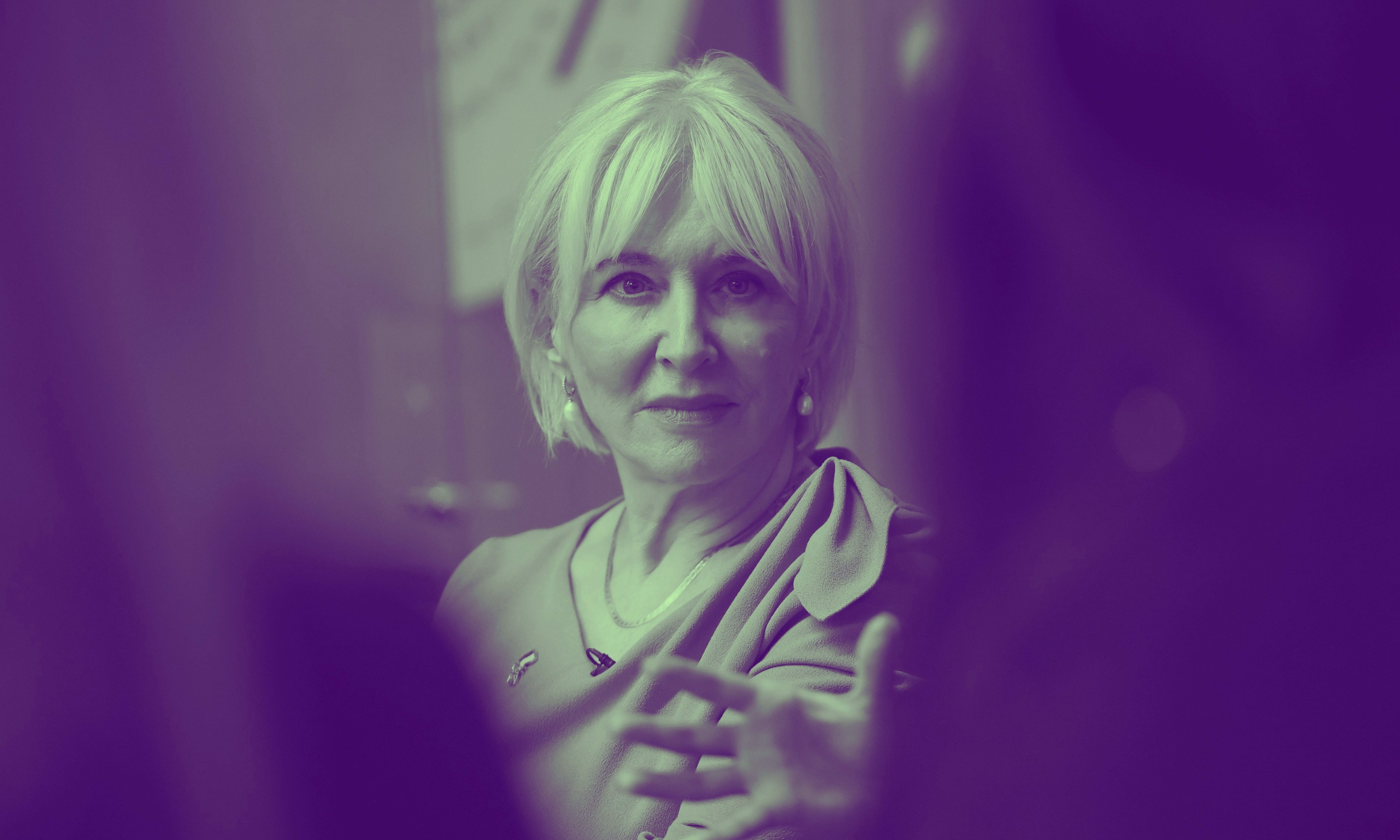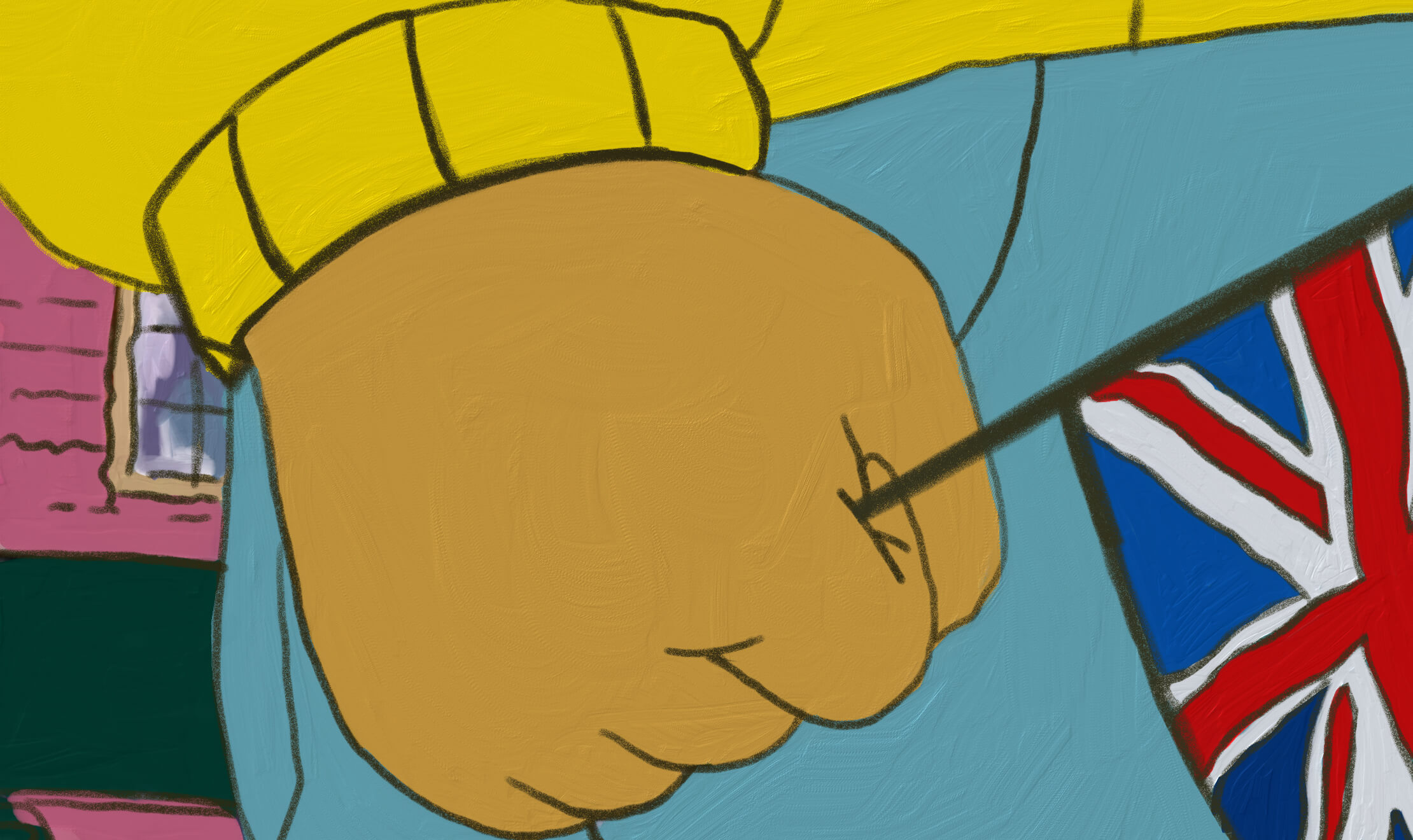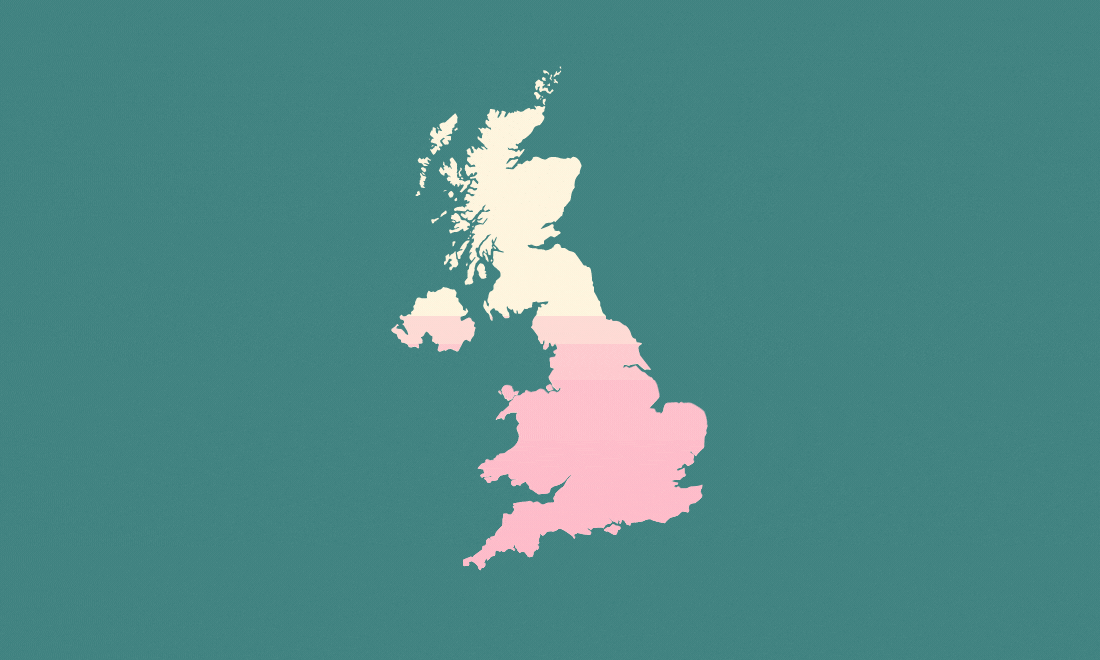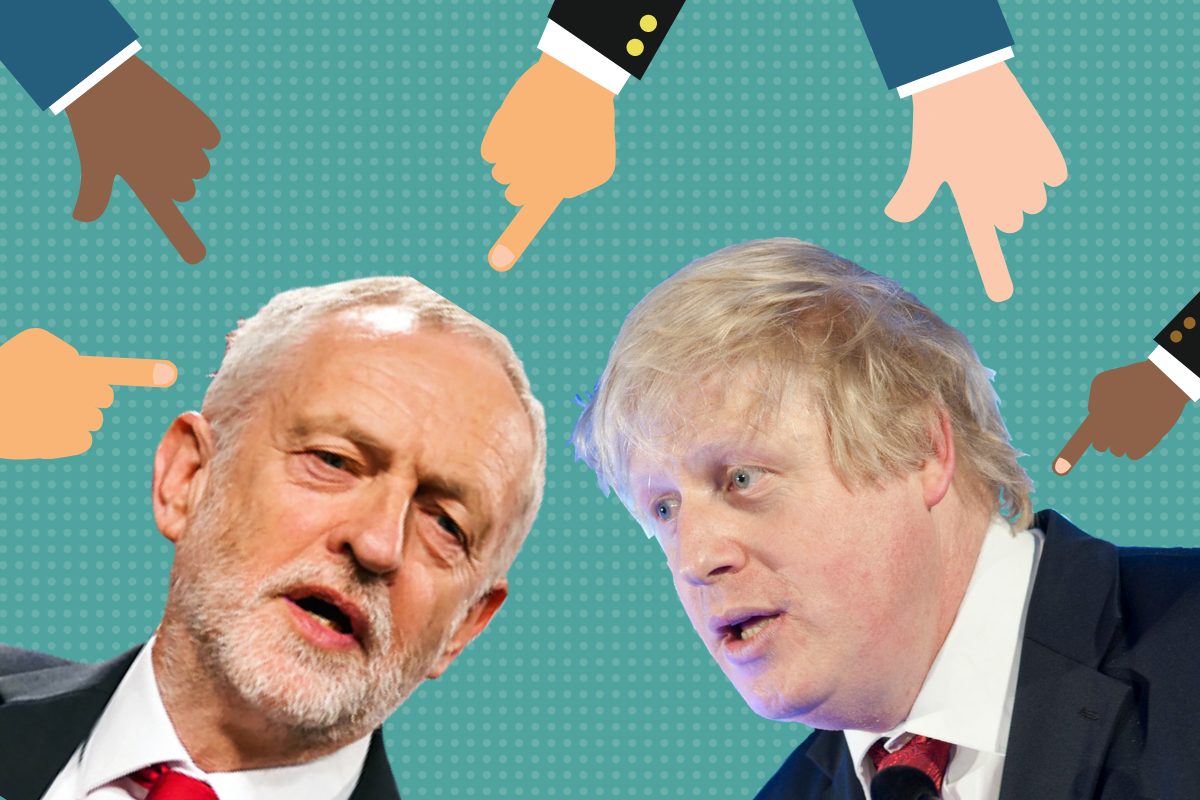
Here are all the important topics that were left unaddressed in the leaders’ debate
Aleesha Khaliq
20 Nov 2019
Image via Leah Cowan / Wikimedia Commons / Sophie Brown / the Financial Times
Last night, the much-anticipated leaders debate featuring Conservative Prime Minister Boris Johnson and leader of the opposition Jeremy Corbyn was watched by 6.7 million people, a significant increase from the 2017 General Election. The hour-long debate touched on important topics, but expectedly, many issues facing people of colour and religious minorities weren’t mentioned. Mention of the disproportionate levels of poverty, systematic discrimination, deportations, racism and Islamophobia we face in this country remained absent. Bearing this in mind, it almost felt insulting that as the discussion drew to a close, the last question was: “What would you put under each other’s Christmas trees?”
Naturally, we were left wanting for more. So here are the biggest topics affecting people of colour that the debate failed to address.
Windrush
The first issue to remain totally absent from last night’s debate was the Windrush “scandal”. With 6.7 million people watching and the debate heavily focusing on holding leaders to account for their party’s actions, the treatment of the Windrush generation remained absent, even when the subject of immigration came up.
It was utterly disheartening to see that during the hour-long debate, the Conservative government’s deportations of black British citizens was omitted from discussion on both racism and immigration. The Windrush scandal saw predominantly black citizens deported to countries they’d never known, denied healthcare, housing, pensions, jobs and so much more. This issue should have been brought to the attention of viewers the moment the subject of immigration came up. Instead, Boris took no lessons and fear-mongered about Labour’s immigration policies.
“The fact that Islamophobia took a back seat allowed Boris to take a moral high-ground on racism in the debate”
Islamophobia
Islamophobia also remained absent from the ITV debate. As Jeremy was rightly asked about anti-semitism in the Labour Party and past failures to address it, Islamophobia was discarded as an issue in the Conservative Party, despite news having broken that day about the Conservatives’ failure to challenge an Islamophobic parliamentary candidate.
Alongside this, the Conservatives have consistently dodged holding an inquiry into Islamophobia despite research by HopeNotHate finding that 60% of Conservative Party members think Islam is a threat to the West, 45% wouldn’t want a Muslim prime minister, and 40% think that there should be a reduction on Muslims entering the UK.
Many Muslims and allies felt outraged that Boris wasn’t questioned on the 375% increase in hate crimes against Muslim women following his column that claimed women who wear Burkas look like “bank robbers” and “letterboxes”. We’re glad that antisemitism was discussed, yet disheartened at the fact that Islamophobia took a back seat, allowing Boris to take a moral high-ground on racism during the debate.
Boris’ history of racism and homophobia
More broadly than Islamophobia, Boris’ long history of bigoted comments remained totally absent, almost as though they never happened. Aren’t political debates about holding politicians to account? So why wasn’t he asked to apologise?
Boris has joked about “clearing out” dead Libyan bodies in Libya because he knew of “wonderful guys” – UK business people – who had a “brilliant” vision to turn the Libyan city of Sirte “into the next Dubai”. To this day, he has not apologised for these comments.
Boris has also referred to gay people as “bumboys”, compared equal marriage to “three men marrying a dog”, called Black people “picaninnies” with “watermelon smiles”. And not just this, Boris Johnson conspired with a friend to beat up a journalist. Yet, all this history of overt bigotry, racism and homophobia remained absent from the debate and it remains shocking that the Prime Minister of the UK continues to not be held to account.
Post-referendum hate crimes
Rightly so, both Boris and Jeremy were questioned about “childish” abuse which has happened under their leadership in the current climate of Brexit. But again, omitted from this discussion was the rise in hate crime, xenophobia, Islamophobia, and the fact that far-right extremism is the UK’s fastest growing terror threat.
Boris was not asked about being endorsed by Britain’s most notorious fascists: The DFLA, Katie Hopkins, Tommy Robinson and Jayda Fransen. People of colour around the country deserve answers on how both Jeremy and Boris would tackle this increase in hate crime and xenophobia – and this subject deserved to be brought up in front of the 6.7 million viewing.
Austerity’s effects on people of colour
Various research studies have found that Tory austerity has hit people of colour the hardest, particularly women of colour and those from dual heritage households. It has yet to be addressed that nearly half of all black, Pakistani and Bangladeshi children are living in poverty.
So, whilst the topic of austerity was consistently and rightly raised by Jeremy, who laid out his plans to end austerity, it is important to emphasise how these issues intersect with communities of colour in Britain. Yet it remains absent in mainstream media and political discourse.
***
Overall, the hour-long leaders’ debate touched on important topics that impact us all. It was great to see discussion on issues like the NHS, anti-semitism, Brexit policies and sexual harassment.
However, there are still a number of issues affecting people of colour that didn’t make it onto the agenda. The Electoral Commission recently found that 25% of black voters, 24% of Asian voters and 31% of people with a dual heritage ethnicity are unregistered. So, in the next debate, let’s hope our politicians turn their attention to more of the issues we face.

